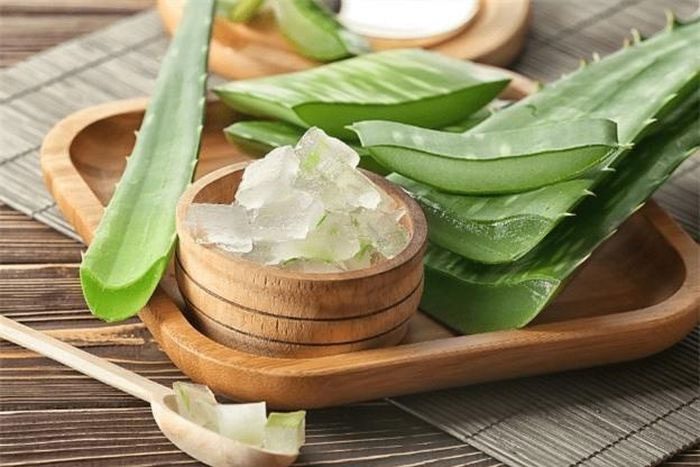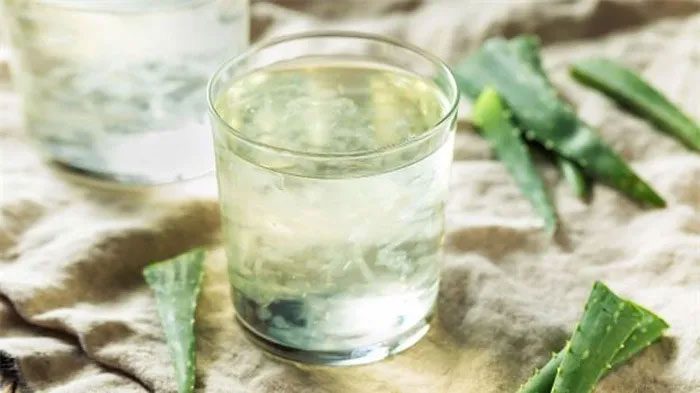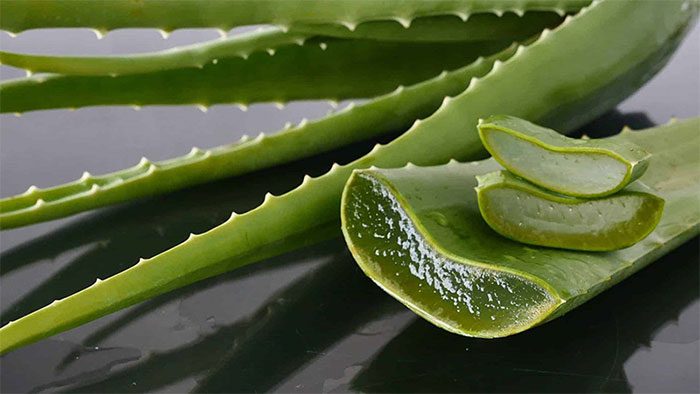Aloe vera, also known as aloe, long tu, or tiger tongue, can be considered a small medicine cabinet at home. The gel in its leaves can be applied directly to burns, from burns caused by gas to sunburns. However, despite being an herb, it is not safe for everyone.
The aloe vera plant has been used in medicinal practices since ancient Egypt thousands of years ago, and it was referred to by the Egyptians as “the plant of immortality.” According to the U.S. National Center for Complementary and Integrative Health (NCCIH), there is evidence that Queen Cleopatra I of Egypt used aloe vera as a daily beverage to achieve smooth skin and a vibrant appearance.
This plant originates from North Africa and southern Europe, and it is now commonly grown in tropical climates around the world. Aloe leaves are renowned for their skin beautifying effects, moisturizing properties, and scientists are exploring many other health benefits.

Aloe vera has been used in medicinal practices since ancient Egypt thousands of years ago.
Reduces Heartburn and Supports Digestion
Gastroesophageal reflux disease is a common digestive disorder, often characterized by heartburn. A 2010 review indicated that consuming aloe vera in meals may reduce heartburn symptoms and soothe other related digestive issues.
The gel inside aloe vera contains enzymes that accelerate food digestion and alleviate bloating. Thus, this leaf is also considered a natural laxative, promoting bowel movements and preventing constipation.
Lowers Blood Sugar
According to a study published in the journal Phytomedicine, consuming two tablespoons of aloe vera juice daily may lower blood sugar levels in individuals with type 2 diabetes. Compounds in aloe vera are believed to help balance blood sugar, benefiting those with diabetes or at risk of developing it.
Adding aloe vera to the diet of individuals with diabetes may enhance health due to its beneficial enzymes and compounds. Aloe vera tea, aloe vera salad, and fruit smoothies with added aloe vera are recommended culinary preparations by doctors.
Those taking blood sugar-lowering medications should exercise caution and consult a physician before using aloe vera, as juice from this plant may excessively lower blood sugar levels.

Aloe vera gel retains warmth, improves skin elasticity.
Enhances Skin and Hair Health, Soothes Sunburn
Aloe vera gel retains warmth for the skin, improves elasticity, and prevents the development of wrinkles and acne. A small-scale study in 2009 involving women over 45 found that drinking aloe vera juice boosts collagen production and improves skin elasticity, particularly beneficial for those with dry skin.
Applying aloe vera to sunburns helps the skin heal faster and prevents peeling. This is due to aloe vera’s antibacterial properties, making it effective in healing wounds such as minor burns and mouth ulcers, while also supporting skin issues. Using aloe vera gel directly on hair increases moisture, softens, and reduces dryness and tangling.
Boosts Immune Function
Aloe vera is rich in vitamins and minerals, including vitamin C, vitamin E, beta-carotene (a precursor to vitamin A), and various minerals such as magnesium, zinc, and selenium. These nutrients play significant roles in supporting the immune system.
The antioxidant compounds in aloe vera, such as polyphenols and flavonoids, help protect cells from damage caused by free radicals. Regular use of aloe vera may help prevent bacterial growth and enhance the body’s ability to fight illnesses.
In addition to the aforementioned benefits, aloe vera also improves oral health, helps control weight, and reduces inflammation symptoms in the body.
Interesting Applications
Aloe vera has long been known for its wound-healing properties. Its ability to heal burns, open wounds, and relieve pain has been documented for over ten centuries.
Legend has it that Queen Cleopatra used aloe vera to maintain her skin’s freshness and softness.
Modern history records the use of aloe vera beginning in the 1930s. Aloe vera became a key ingredient in products for treating sunburn, minor wounds, skin irritations, and various other minor injuries.
Recently, aloe vera has gained popularity as an ingredient in toothpaste. Similar to its application for the skin, aloe vera in toothpaste helps clean, soften gums, and possesses antibacterial properties.
Pure aloe vera gel is typically applied to the skin 3-4 times a day to treat sunburns or minor burns. For larger burns, aloe vera should not be applied, and immediate medical attention is necessary.

Aloe vera juice is not suitable for breastfeeding or pregnant women.
Precautions When Using Aloe Vera
Although aloe vera offers many health benefits, it can also have side effects such as nausea, diarrhea, and allergic rashes. Therefore, it is essential to perform a patch test at least 24 hours before consuming or applying aloe vera to check for allergic reactions. Avoid contact of aloe vera gel with the eyes as it may cause irritation.
It is advisable to use fresh aloe vera instead of processed products that contain high levels of sugar and preservatives. Fresh aloe vera leaves contain more nutrients and produce more noticeable effects. When consuming fresh aloe vera, it is necessary to clean the yellow latex layer next to the aloe gel to avoid poisoning by peeling the skin and rinsing/soaking it in clean water until all the slime is removed.
Aloe vera juice is not suitable for breastfeeding or pregnant women as it may cause uterine contractions in pregnant women. Additionally, individuals with irritable bowel syndrome or heart conditions should avoid this plant.
Aloe vera should not be used if suffering from hemorrhoids, kidney disease, heart disease, or arrhythmias.
Avoid using aloe vera if allergic to onions, garlic, or tulips.
There are around 300 species of aloe, but only a few of them are truly suitable for medicinal purposes.
Aloe vera can be applied in clinical treatments as follows:
PGS.TS Nguyễn Thị Bay |


















































